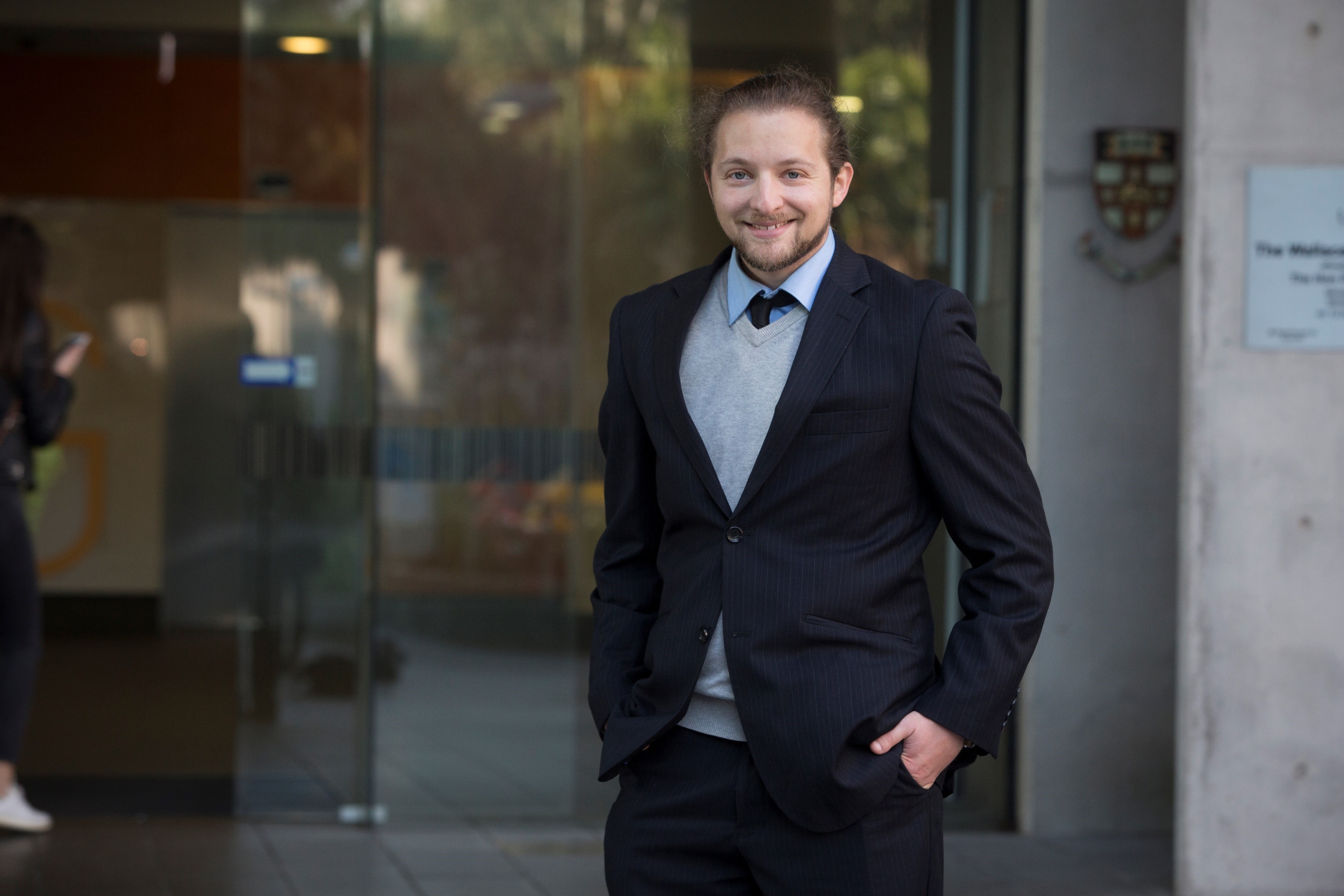Funding success for new strategy to promote healthy brain ageing
Dr Nady Braidy has been awarded the NHMRC Investigator Grant to develop a new dementia strategy.
Dr Nady Braidy has been awarded the NHMRC Investigator Grant to develop a new dementia strategy.

HEIDI DOUGLASS | h.douglass@unsw.edu.au
Leader of the Brain Ageing Research Laboratory at UNSW Sydney’s Centre for Healthy Brain Ageing (CHeBA), Dr Nady Braidy, has today been awarded a National Health & Medical Research Council (NHMRC) Investigator Grant to develop a new strategy to improve cognition and quality of life for people living with cognitive impairment and dementia.
The prestigious award will allow Dr Braidy’s team at CHeBA to evaluate the prognostic value of the nicotinamide adenine dinucleotide (NAD+) metabolome and therapeutic relevance of novel strategies to raise NAD+ levels for the treatment of Alzheimer’s disease and other dementias, while promoting ‘healthy’ brain ageing.
CHeBA Co-Director Professor Perminder Sachdev said Dr Braidy was deserving of an Investigator Grant.
“Dr Braidy is an international leader in the biology of ageing and has made seminal contributions in the role of NAD+, one of the most abundant molecules in the cell and critical for the cell’s function.”
Professor Perminder Sachdev
“His work has the potential to develop strategies for a long and healthy life without dementia. This investigator grant will give him the support needed to move closer to this goal,” said Professor Sachdev.
Australia’s ageing population continues to grow significantly, as a result of increase in life expectancy, improved standards of living and healthcare, declining fertility rates, lower mortality and impact of migration levels. Ageing remains a major risk factor for dementia.
For decades, single target drugs have failed to show improvement in the condition of people living with dementia. These failures have encouraged researchers including Dr Braidy to approach the dementia epidemic from a very basic and well-recognised perspective, i.e., its strong association with ageing. Nutritional alteration through a change of NAD+ has been shown to be effective as an anti-ageing factor, promoting longevity and protecting against neurodegenerative pathology in several research models.
Dr Braidy’s research in brain ageing and dementia spans a decade with his influential discovery that the levels of NAD+ declines with age in catabolic tissue including the brain in rats and humans.
“The anti-ageing industry is burgeoning, estimated globally at about $250 billion annually, with a significant percentage attributed to the sales of health supplements aimed at raising NAD+ levels."
Dr Nady Braidy
“Yet, there is very limited published research showing how raising NAD+ levels can improve brain health in humans,” said Dr Braidy.
If found effective, the research program will identify molecular pathways associated with NAD+ which can improve cognition and quality of life with ageing and create a new novel anti-dementia strategy with world-wide significance. Promoting healthy brain ageing is of considerable importance since there has been substantial increases in life expectancy due to improved standards of living and access to better healthcare in the developed world.
Further, ‘unhealthy’ brain ageing has many considerable negative impacts, including on employee performance, workforce engagement, and other societal interactions that result in reduced productivity. It also puts an immense strain on social welfare. The potential of NAD+ research is vast, with the potential to improve declining economies considerably through decreased health expenditure and increased employment.
The Investigator Grant will allow Dr Braidy and his team to evaluate the efficacy of NAD+ boosting compounds for reducing vascular and Alzheimer’s-like pathology in animal models and correlate them with severity and progression of Alzheimer’s disease (AD) and other dementias.
“A future translational outcome of the research program will then be directed towards enhancing NAD+ anabolism through dietary, and other modifiable lifestyle approaches
for dementia in clinical trials,” he said.
"This is an exciting time for age-related brain research."
Dr Nady Braidy
“The expectation is that in five years, my laboratory will develop the empirical basis for the use of NAD+ to help promote healthy brain ageing and delay, or even reverse dementia,” said Dr Braidy.